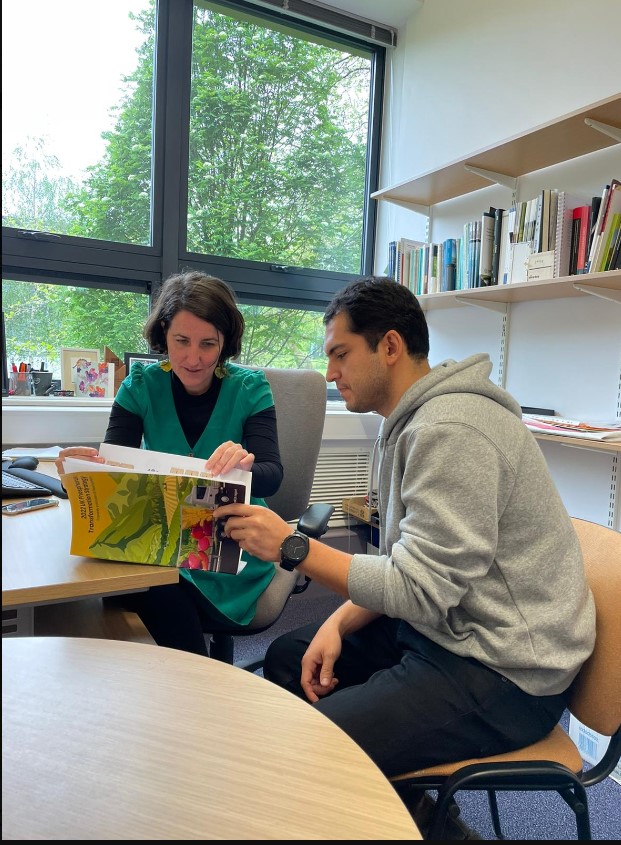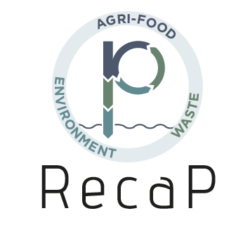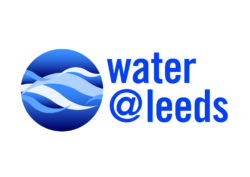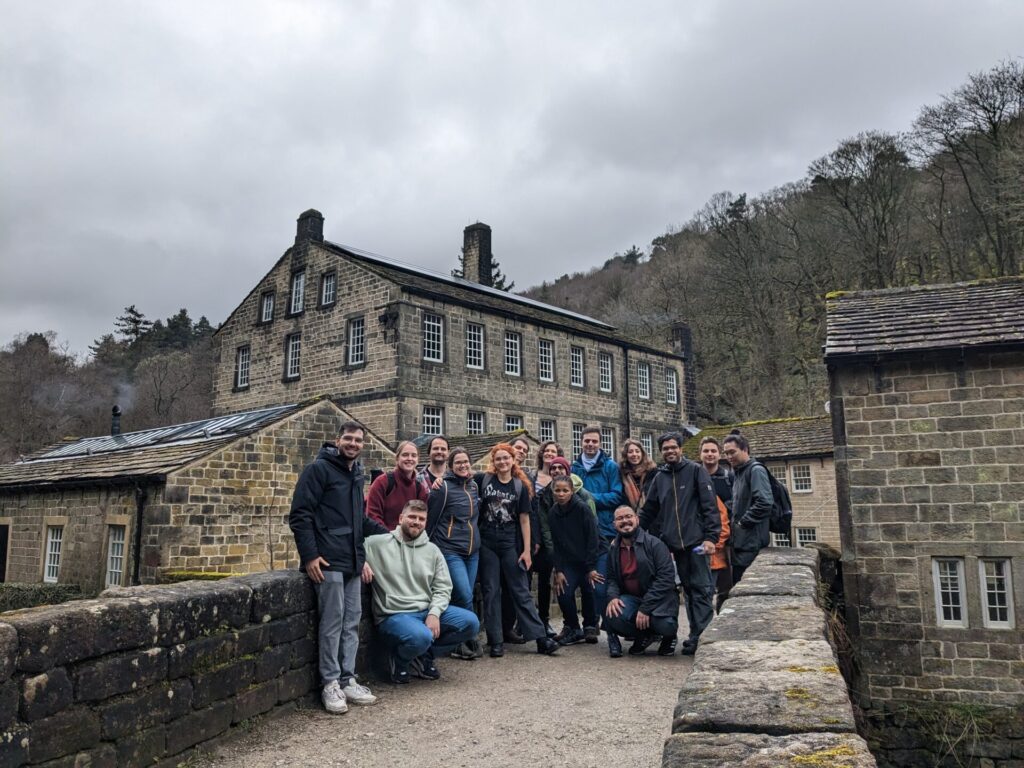
International students gave glowing feedback following a visit to University of Leeds, which included a field trip the picturesque Hardcastle Crags to learn more about how the practical value research can have for communities.
Two of our project support officers Emma Cowan and Farhana Naz, enjoyed helping host the visit to the National Trust site for a group of fifteen PhD students taking part in the H2020 RecaP project.
The aim of the RecaP network is to train young scientists to consider ‘impact’ in their work and how environmental science can address the needs of society, for example by changing policies, technology and industrial practices, mindsets and behaviours.
This visit was just part of an EU funded, innovative international training programme which aims to address the capture, recycling and management of phosphorus in the environment in a more holistic way.
The visit was convened by Professor of Ecological Economics, Julia Martin-Ortega, at University of Leeds and Associate Director of water@leeds.
Professor Martin-Ortega said: “Our wonderful early career researchers deep-dived into how to deliver impact from their research.
“The objective of this project is to train the next generation of scientists to be able to tackle the very important global challenge of phosphorus.”
She added: “The Hardcastle Crags Natural Flood Management (NFM) project provided an excellent opportunity for our students to learn about the iCASP model for impact delivery.
“Even though NFM is a different topic to phosphorus, the project is exemplary of the way in which we build relationships with our partners on the ground to deliver impact and this has relevance for all kinds of environmental research.”
Listen to what the students say about how they are benefiting from the project on a new video
The site visit to Hardcastle Crags involved a tour of the many Natural Flood Management (NFM) installations on site, for example, leaky woody dams and fallen trees, which were installed by volunteers from Slow the Flow – a charity working to educate member of the public about NFM, Sustainable Drainage Systems and other renewable methods of managing the environment.
The purpose of the field trip was to demonstrate the importance of partnerships and collaborative working to achieve impact and work towards a common goal – reducing flooding in the Calder Valley.
iCASP Impact Translation Fellow, Thomas Willis, talked to the group about his SD TOPMODEL work used in Calderdale
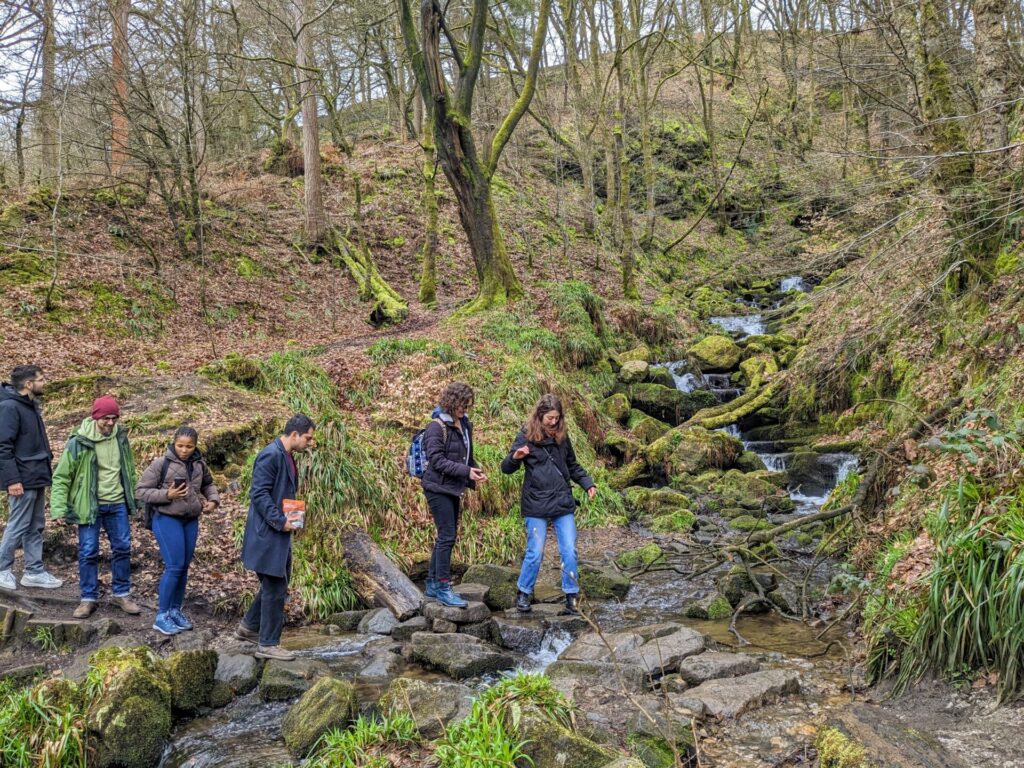
This project provided modelling expertise and scientific evidence to feed into the Calderdale Flood Action Plan and provided a business case for NFM installations in the catchment. You can find out more about it by watching our iCASP video.
The cohort of students from across the world worked with the water@leeds team, at University of Leeds, for five days with a chance to explore Leeds and consider the different aspects of phosphorus research.
The international students described their visit as ‘inspiring’. Some of their comments on social media were:-
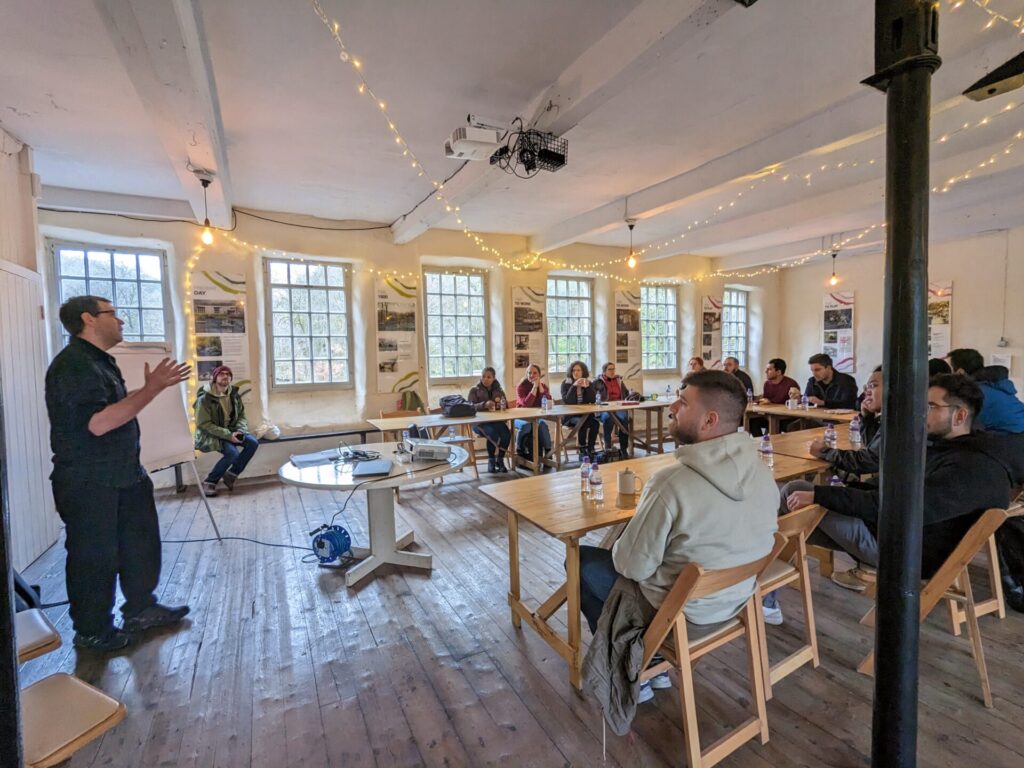
“I will always remember the impact I want to cause with my research and use it to keep going.”
“We had so many stimulating meetings and occasions to exchange ideas with amazing researchers What a week, what an energy! We can actually say this has been impactful training.”
“We got new tools and exchanged ideas to have an impact on the global challenge.
As part of the training, water@leeds and Global Food Leeds supported a networking event with a panel of phosphorus experts ranging from rock, to molecules, to wastewater and catchment science.
One of the students Juan Dieggo Serano (pictured with Julia) is working on the cost benefits of implementing phosphorus recycling from waste water in his secondment at the Univerity of Leeds with Prof Martin-Ortego.
